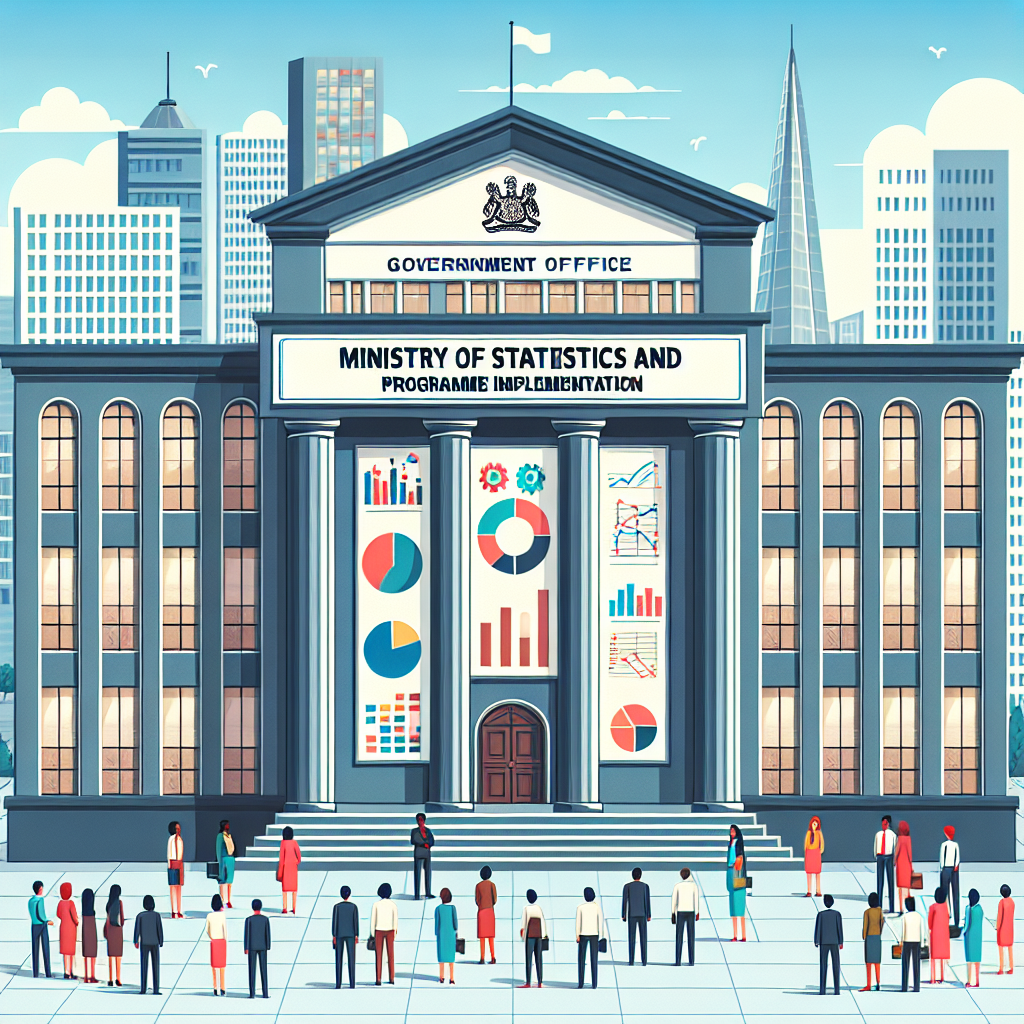NSO Accelerates Digital Transformation to Deliver Timely, Quality Data for New India
Over the past year, NSO has achieved numerous milestones, marking a pivotal leap toward a data-driven governance ecosystem.

- Country:
- India
The National Statistical Office (NSO), under the Ministry of Statistics and Programme Implementation (MoSPI), is leading a revolutionary digital transformation to modernize India’s statistical infrastructure, empower stakeholders with real-time access to credible data, and support the nation's vision of becoming a developed country (Viksit Bharat) by 2047. Over the past year, NSO has achieved numerous milestones, marking a pivotal leap toward a data-driven governance ecosystem.
From eSankhyiki to GoIStats: A Year of Digital Milestones
The journey began with the launch of the eSankhyiki portal on National Statistics Day, June 29, 2024. This comprehensive portal became the centerpiece of MoSPI’s digital ecosystem, providing streamlined access to vital datasets, statistical dashboards, and analytical tools for citizens, researchers, and decision-makers.
Since then, NSO has introduced more than a dozen digital assets, including:
-
DI Lab (Data Innovation Lab): A platform fostering data-driven experimentation and ideation.
-
Online Compilation and Monitoring System (OCMS): Enabling efficient data collection and reporting.
-
Metadata Portals: Offering comprehensive descriptions and classifications of datasets to improve usability.
-
Dedicated websites for key institutions: Including the National Statistical System Training Academy (NSSTA) and the National Statistical Commission (NSC).
-
Public-facing dashboards: Covering critical statistical domains like the Social Statistics Division (SSD), Annual Survey of Industries (ASI), Economic Census (EC), and National Sample Survey (NSS).
The eSankhyiki portal now hosts over 135 million statistical records, providing a dynamic and transparent window into India’s official statistics. This vast repository is designed for ease of access and utility across stakeholders—from students and academics to economists and policy experts.
The upcoming GoIStats mobile application, scheduled for launch on National Statistics Day 2025, is expected to further democratize data access by bringing government statistics to citizens' fingertips.
Harnessing Emerging Technologies for Statistical Innovation
MoSPI has demonstrated its readiness for the future by proactively adopting emerging technologies in official statistics. Seven high-impact use cases have been identified to integrate technologies such as Artificial Intelligence (AI), Machine Learning (ML), and Big Data Analytics.
Achievements in this domain include:
-
Completion of three Proofs of Concept (POCs) for piloting advanced data methodologies.
-
Launch of three pilot programs for further integration into statistical workflows.
-
International recognition of India’s leadership in data science through NSO’s invitation to present at the United Nations Economic Commission for Europe (UNECE) Conference on Generative AI.
-
Membership in the UN Committee of Experts on Big Data and Data Science for Official Statistics (UNCEBD).
These efforts ensure India remains aligned with global statistical best practices, and continues to innovate in the face of evolving data needs and technologies.
Cybersecurity: Safeguarding the Statistical Infrastructure
With the exponential growth of digital infrastructure comes the pressing need for robust cybersecurity measures. MoSPI has addressed this by:
-
Appointing a Chief Information Security Officer (CISO) to lead cybersecurity governance.
-
Engaging a specialized cybersecurity agency to ensure the protection of national statistical assets.
-
Implementing safeguards to uphold data integrity, confidentiality, and availability, which are essential to trust in official statistics.
This move reaffirms the Ministry's commitment to responsible data stewardship in a rapidly digitizing environment.
Strategic, Phased Rollout of Digital Transformation
MoSPI’s digital transition is not just ambitious but also systematic and strategic. The first phase, now nearing completion, has focused primarily on two key areas:
-
Data Dissemination – Making official statistics accessible, understandable, and actionable.
-
Data Collection – Modernizing the capture of information through tools like the eSigma platform, which digitizes and streamlines statistical survey operations.
The next phase will shift attention to data processing and analytics. The forthcoming digital transformation blueprint aims to modernize the back-end processes to ensure faster statistical outputs, seamless integration of multi-source data, and greater analytical depth.
The goal is to create a fully digitized, end-to-end statistical production system—from data acquisition to dissemination—that is efficient, transparent, and responsive to policy and planning needs.
Building a Data-Driven New India
As India approaches its centenary of independence in 2047, the role of timely, reliable, and high-quality data becomes more crucial than ever. MoSPI’s digital overhaul aligns closely with India’s Viksit Bharat vision, which seeks holistic development across sectors through evidence-based policymaking.
By facilitating:
-
Transparent data dissemination,
-
Technology-enabled statistical production,
-
Capacity-building through training institutions like NSSTA, and
-
International collaboration and benchmarking,
MoSPI is laying the foundation for a resilient statistical system that meets the demands of the 21st century.
Empowering Stakeholders, One Dataset at a Time
From village-level planning to national economic forecasting, data is central to every decision. MoSPI’s digital infrastructure enables:
-
Researchers to access verified datasets for academic exploration.
-
Policymakers to make informed decisions based on real-time evidence.
-
Citizens to understand socio-economic trends that affect their lives.
The digital transformation of NSO ensures equitable access to official statistics, breaking down silos and making data a public good for inclusive growth.










